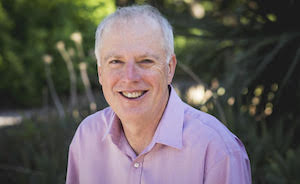
The Association for Computing Machinery (ACM) and IEEE Computer Society have named RCC Director Professor David Abramson as the recipient of the 2021 ACM-IEEE CS Ken Kennedy Award.
He will formally receive his award and give a keynote speech at the International Conference for High Performance Computing, Networking, Storage and Analysis (SC21) in St Louis, USA, across 14–19 November. The SC series is the world’s largest supercomputing conference.
David is being recognised for contributions to parallel and distributed computing tools, with application from quantum chemistry to engineering design. He is also cited for his mentorship and service to the field.
ACM and IEEE CS co-sponsor the Kennedy Award, which was established in 2009 to recognise substantial contributions to programmability and productivity in computing and significant community service or mentoring contributions.
The award was named for the late Ken Kennedy, founder of Rice University’s computer science program and a world expert on high-performance computing. The Kennedy Award carries a US $5,000 honorarium endowed by IEEE CS and ACM.
Technical contributions
David has performed pioneering research in the design, implementation and application of software tools for parallel and distributed systems. He has conducted foundational research in distributed and parallel middleware, addressing programmer productivity and software correctness, and has influenced multiple generations of researchers.
His papers have been cited more than 12,000 times.
Two highly-regarded tools developed by David include Nimrod, a family of software systems that support the execution of distributed parameter sweeps, searches and workflows; and Guard, a performance tuning and debugging tool.
RCC actively supports Nimrod at The University of Queensland for its researchers.
The Nimrod template is common in many fields and is well suited to execution in distributed environments. Nimrod makes it possible to write concisely complex parameter sweeps—which entail executing an algorithm repeatedly with varying parameters—and supports advanced searches that integrate optimisation algorithms, design of experiments methods, and scientific workflows.
Additionally, the Nimrod project spawned a family of tools that make it easy to specify complex computational experiments and has resulted in a spinoff commercial product called EnFuzion, which has been widely adopted for power grid and simulation.
David designed Guard with a hybrid debugging scheme that tests new versions of a program against reference versions known to be correct. Guard greatly enhances programmers’ ability to locate and fix errors in new software versions. The technology was licensed to Cray Inc. (now HPE) and is distributed on Cray supercomputers. As a result, it has been deployed at major international supercomputing centres, including the US National Energy Research Scientific Computing Center (NERSC) and the Swiss National Supercomputing Centre (CSCS).
Mentorship
David has been an advisor to two dozen graduate students in computer science, as well as countless undergraduate and high school students.
Among his most important initiatives, David has been an international driver of the PRIME initiative, a National Science Foundation-funded University of California San Diego program that enables undergraduate students to take research internships abroad.
Inspired by the success of PRIME, he has introduced similar programs for Australian undergraduates to travel abroad for internships, and he has organised travels for Australian students to top research centres in the US and the UK annually for more than 12 years. While at Monash University, David established the Monash Undergraduate Research Projects Abroad (MURPA) program in 2008 and replicated it as the Queensland Undergraduate Research Projects Abroad (QURPA) program when he moved to UQ in 2013.
Since 2011, he has run a unique program that supports Australian high school students attending SC, the USA-based supercomputing conference. (Read the Queensland Academy for Science, Mathematics and Technology student reports from SC19.)
Also in the mentoring arena, David started streaming video high-performance computing (HPC) seminars that have enabled Australian students to engage with computing world leaders. (View these seminars on RCC’s YouTube channel.)
He also launched the Early Adopters PhD Workshop at SC09. Distinct from other doctoral showcases, the workshop specifically targets research students from fields outside of computer science who are applying HPC tools in their research.
Service to the field
Over his career, David has been General Chair, Program Committee Chair, or program committee member of many conferences related to performance and programmer productivity (on average about eight per year), including IPDPS, HiPC, HPC Asia, HPDC, ICPADS, Cluster, SC, CCGrid, Grid and e-Science.
He is currently the Chair of the e-Science Steering Committee and has served in several senior roles in the IEEE/ACM SC series, including Chair of the Technical Papers Committee (2021) and the Test of Time Award Committee (2018), Co-chair of the Invited Speakers Committee (2019) and “More than HPC” Plenary Committee (2020).
This article is largely based on an ACM media release published 13 October 2021.



